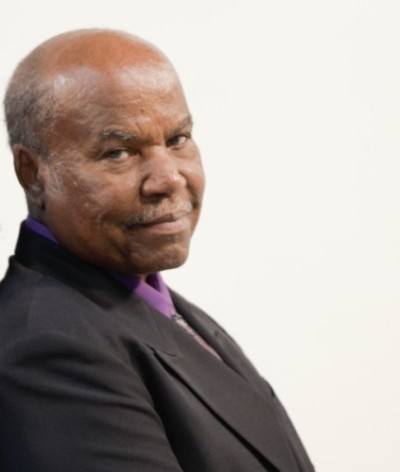Understanding systemic racism as a believer
Brendt Hill, my neighbor, is a former resident of the "Black Bottom" community of Detroit. He is quite a character; a man full of confidence and one capable of handling with aplomb whatever life throws at him.

Yet, during the course of our conversations over the years, I still detect at age 80 the sting of racism despite his many accomplishments and those of his family. Maya Angelou said it and it remains true: people never forget how you made them feel.
It is always a privilege to talk with him because I always learn something interesting, since as a migrant from the Bahamas to Miami, I do not share in his experience.
Here is one conclusion I have gleaned from our conversations: power facilitates access to money that maintains said power and influence over a society.
Recently, he gave me a copy of an article in The Atlantic magazine about the Great Land Robbery where hundreds of black families in Mississippi were swindled out of their lands. This followed my reading about the persecution and eviction of blacks in Manhattan Beach, California, and the white restaurant owner who enslaved a functionally illiterate black man, making him work 100 hours a week for little or no pay.
I have learned that the irrational pursuit of money can become so ingrained in one's mindset that it morphs into a divinely appointed right and privilege. Therefore, mankind would do anything – commit any atrocity and turn a blind eye to the suffering – for money.
"For the love of money is the root of all evil: which while some coveted after, they have erred from the faith, and pierced themselves through with many sorrows" – 1 Timothy 6:10.
Recently there have been uproar in white evangelical churches about the teaching of critical race theory as well as the schools about inclusion of the 1619 project in their curriculum. These are man-made solutions to a problem that really requires a spiritual correction. Laws and legislation grow out of circumstances where people have refused to do the correct thing.
While I cannot say I support either one, I do agree that men, especially white men, must acknowledge the wrongdoing that set these grave injustices in motion in this country.
Can we acknowledge that the church, namely Southern Baptists, at one time used the Bible to justify slavery?
Can we acknowledge how supposedly stalwart Christians like Robert E. Lee and Stonewall Jackson fought with all their might to destroy the United States of America?
Can we acknowledge the emotions of poor black students whose ancestors languished in substandard schools under that supposedly just, yet inherently evil, "separate but equal" system?
The hypocrisy is palpable, and with that as the backdrop, I delved into a book that Brendt loaned to me: Black Detroit: A People's History of Self-Determination by Herb Boyd.
Detroit, if you recall, had undergone the largest municipal bankruptcy in U.S. history in 2013. While the city may be on the rebound, development is still uneven. In the afterword in Black Detroit, Ron Lockett, executive director of the Northeast Activities Center, wrote, "but the city still has major hurdles ahead with a large, unskilled and semiliterate population."
Hmmm, I wonder what caused that! I learned from reading Boyd’s book that what happened in Detroit is a microcosm of the black experience in the Western hemisphere.
Negro troops at the time were paid only $7 a month while the white troops received $10 (page 47). The average rent for white families was $30 a month; for negro families it was closer to $50 and they got worse housing for their money (page 97).
The book includes a story about an 18-year-old youth named Young in 1936 who was working as an electrical apprentice at the Ford Motor Company electrical program. Although he excelled in all the tests, a white man with lower scores but whose father was a foreman at the plant, got the only job that was open (page 130).
Whenever black workers were promoted, the white workers were outraged. In September of 1941, when the Packard Motor company transferred 2 black polishers to defense work, approximately 250 white workers staged a 40 minute sit-down strike, which halted the unit's operations (page 142).
To those who recoil at the notion of systemic racism, you are dismissing or discounting the pain of countless people of color whose careers have been thwarted, whose dreams have been deferred, and whose very lives have been snuffed out because of the monstrous, heinous acts of racism.
For emphasis, please Google: Tulsa, Oklahoma 1921.
To those who so blithely dismiss the mournful complaint of the colored brother, the Bible has a blunt reminder: "He that is ready to slip with his feet is as a lamp despised in the thought of him that is at ease" – Job 12:5.
Job’s words are more plainly outlined in The Message version: “It’s easy for the well-to-do to point their fingers in blame, for the well-fixed to pour scorn on the strugglers. Crooks reside safely in high-security houses, insolent blasphemers live in luxury; they’ve bought and paid for a god who’ll protect them.”
Yes, friends, it is much easier to disregard the painful cry of another when one has not felt any of that pain.
I wonder where we would be if Christ had ignored our circumstances?
Nevertheless, there is a more important question. How do we get out from under?
Here are three simple steps, specifically for the person of color:
1. Pursue spiritual, secular and financial education. Everyone needs a moral compass, an understanding of the dynamics of the world and the inherent nature of money. Don't waste time, resources or money on vehicles or enterprises that do not increase in value. Profit is not a dirty word.
2. Seek and seize opportunity whenever and wherever you encounter it. Do not squander an opportunity, no matter how small or insignificant it appears to be. A mighty oak starts as a small acorn.
3. Establish alliances and cooperatives with any and everyone, even people culturally different from you. A successful business does not require everyone to look alike, only think alike about achieving a particular goal. We must all be part of the same T.E.A.M., where together everyone achieves more. A rising tide must lift all boats.
We take our cue from Martin Luther King, Jr., Booker T. Washington, Herschel Walker and the Delany sisters when we say that the main objective of black Americans is not a hand out or even a hand up, but only recognition and sincere repentance for the wrong that has been done to us. Our desire is a genuine opportunity to succeed or fail based on our own merits, not with someone's thumb on the scale for or against us.
We want to get to that place where Sidney Poitier poignantly reminded his distressed father in the movie "Guess who's coming to dinner”: "you think of yourself as a colored man, I think of myself as just a man."
If the great majority of us understand that simple fact, then we will be well on the way to a more perfect country.
Livingstone Knowles is a husband, father and prison minister with an interest in penning issues that serve to uplift mankind. He melds his love for Classic literature, The Bible and pop culture - as sordid as it may be - into highly relatable columns of truth, faith and justice. He pens a regular column called Just Thinking. He is also the co-author of HOLA America: Guts, Grit, Grind and Further Traits in the Successful American Immigrant and the online course by the same name.




























